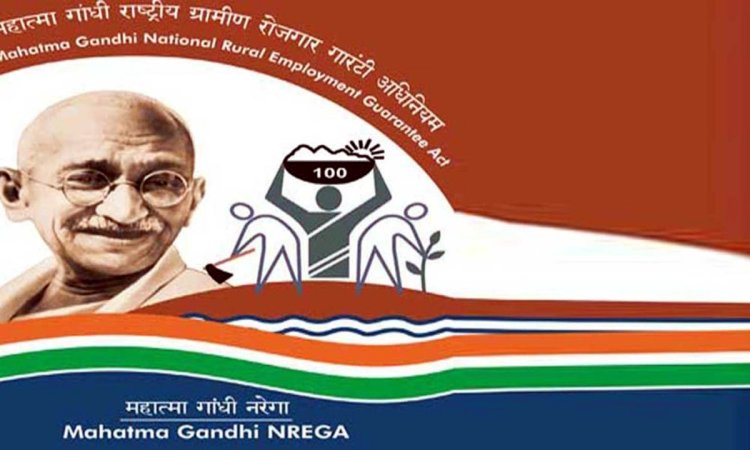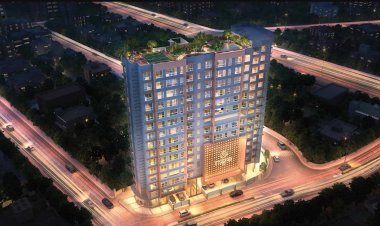How MGNREGA Supports Sustainable Livelihoods in Rural Areas
MGNREGA also focuses on asset creation and infrastructure development. The work often includes building rural roads, canals, ponds, and other irrigation facilities.
Share this Post to earn Money ( Upto ₹100 per 1000 Views )

The Mahatma Gandhi National Rural Employment Guarantee Act (MGNREGA) is widely regarded as a transformational policy that has significantly impacted rural livelihoods in India. Enacted in 2005, MGNREGA aims to enhance the livelihood security of people in rural areas by guaranteeing at least 100 days of wage employment in a financial year to every household whose adult members volunteer to do unskilled manual work. This article explores how MGNREGA supports sustainable livelihoods in rural regions and its interplay with other schemes like the Pradhan Mantri Kisan Samman Nidhi Yojana (PM-KISAN).
Enhancing Rural Employment
MGNREGA's primary objective is to provide employment to the rural population. By guaranteeing 100 days of work, the scheme helps reduce unemployment and underemployment. As of the 2021-2022 fiscal year, the average daily wage under MGNREGA is around ₹210. In simple calculations, if a household avails the full 100 days of work, they can earn approximately ₹21,000 annually. This income serves as a crucial safety net for rural families, particularly during non-agricultural seasons when work opportunities are scarce.
Infrastructure Development
MGNREGA also focuses on asset creation and infrastructure development. The work often includes building rural roads, canals, ponds, and other irrigation facilities. These developmental efforts not only provide immediate employment but also contribute to long-term agricultural productivity and rural connectivity. For example, constructing a pond under MGNREGA can be a significant source of irrigation, improving crop yields and ensuring water availability during droughts.
Women's Empowerment
One of the notable impacts of MGNREGA is on women's empowerment. Women constitute nearly 53% of the total workforce in the scheme. The participation of women in the labor market can lead to their financial independence and social empowerment. The equal wages offered under MGNREGA, unlike other informal sectors that often exhibit gender wage gaps, ensure that women are compensated fairly. It also increases their bargaining power within households and communities.
PM-KISAN and MGNREGA: Synergistic Benefits
Launched in 2019, the PM Kisan Samman Nidhi Yojana (PM-KISAN) aims to provide income support to small and marginal farmers. Under this scheme, an annual income support of ₹6,000 is provided to eligible farmer families, payable in three equal installments of ₹2,000 each. When combined, MGNREGA and PM-KISAN provide a dual safety net for the rural populace.
For example, a household that avails the full benefits of MGNREGA can earn ₹21,000 annually. If the same household is eligible for PM-KISAN, they get an additional ₹6,000. Therefore, the total income from both schemes amounts to ₹27,000 per year. This combined income support can be a significant uplift for small and marginal farmers, facilitating investments in seeds, fertilizers, and other agricultural inputs.
Financial Inclusion and Transparency
Both MGNREGA and PM-KISAN encourage financial inclusion. Payments under these schemes are made directly into the beneficiaries' bank accounts. This method reduces the risks of corruption and ensures that the funds reach the intended recipients without delays. Moreover, the use of Aadhaar-linked payments enhances transparency and accountability.
Environmental Conservation
MGNREGA's emphasis on sustainable development is not limited to financial gains but extends to environmental conservation. Many MGNREGA projects, like afforestation and water conservation, contribute to ecological balance. For instance, planting trees not only provides employment but also combats deforestation and soil erosion. Similarly, water conservation projects can help recharge groundwater, ensuring a sustainable water supply.
Challenges and Areas of Improvement
Despite its numerous benefits, MGNREGA is not without challenges. Issues like delayed payments, corruption, and lack of adequate planning for works sometimes hinder the scheme's efficacy. Addressing these problems requires robust monitoring mechanisms and efficient management practices. Additionally, increasing the number of guaranteed workdays and wages could further help in enhancing rural livelihoods.
Conclusion
MGNREGA has proven to be a keystone in promoting sustainable livelihoods in rural India. By generating employment, empowering women, creating durable assets, and promoting financial inclusion, it contributes significantly to rural development. When complemented with other schemes like PM-KISAN, MGNREGA's impact is magnified, offering a comprehensive support system for rural households. As with any financial decision, it is essential for investors and beneficiaries to gauge all the pros and cons carefully.
Summary
The Mahatma Gandhi National Rural Employment Guarantee Act (MGNREGA) serves as a significant pillar in supporting sustainable livelihoods in rural India. Launched in 2005, MGNREGA guarantees 100 days of wage employment per year to rural households, providing a vital safety net against unemployment and underemployment. With an average earning potential of ₹21,000 annually from MGNREGA, rural families can achieve a measure of financial stability, especially during non-agricultural seasons.
In conjunction with the Pradhan Mantri Kisan Samman Nidhi Yojana (PM-KISAN), which offers ₹6,000 annually to eligible farmer families, the combined financial support reaches ₹27,000 per year for beneficiaries. This synergy between MGNREGA and PM-KISAN not only augments household incomes but also encourages investments in agriculture, bolstering both immediate and long-term rural development.
Moreover, MGNREGA promotes women's empowerment, environmental conservation, and infrastructural advancements. Challenges like delayed payments and corruption require attention to enhance the scheme's efficacy. Overall, MGNREGA stands out as a key initiative for improving rural welfare, creating sustainable livelihoods, and fostering community development.
Disclaimer:
Investing and participating in financial schemes like MGNREGA and PM-KISAN involve various risks. Beneficiaries must gauge all the pros and cons before fully engaging with these programs.

















